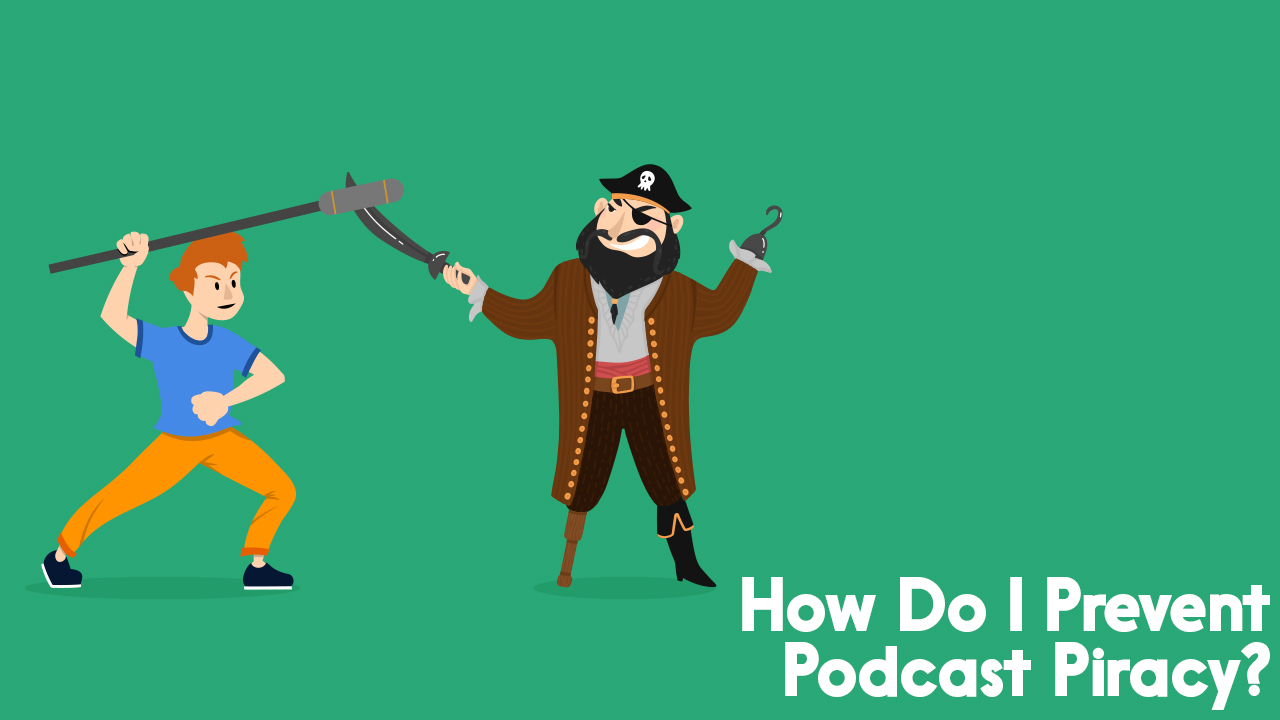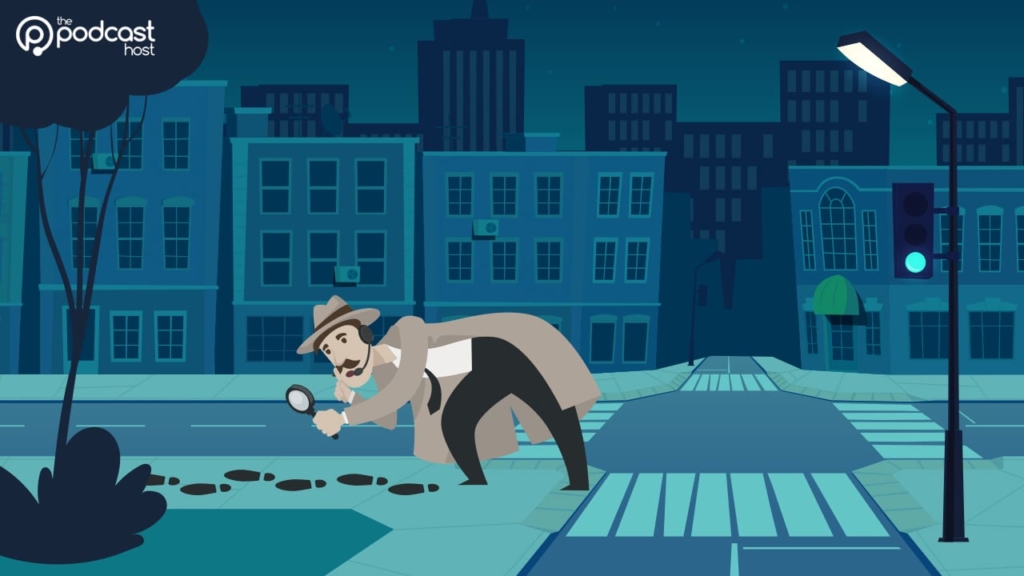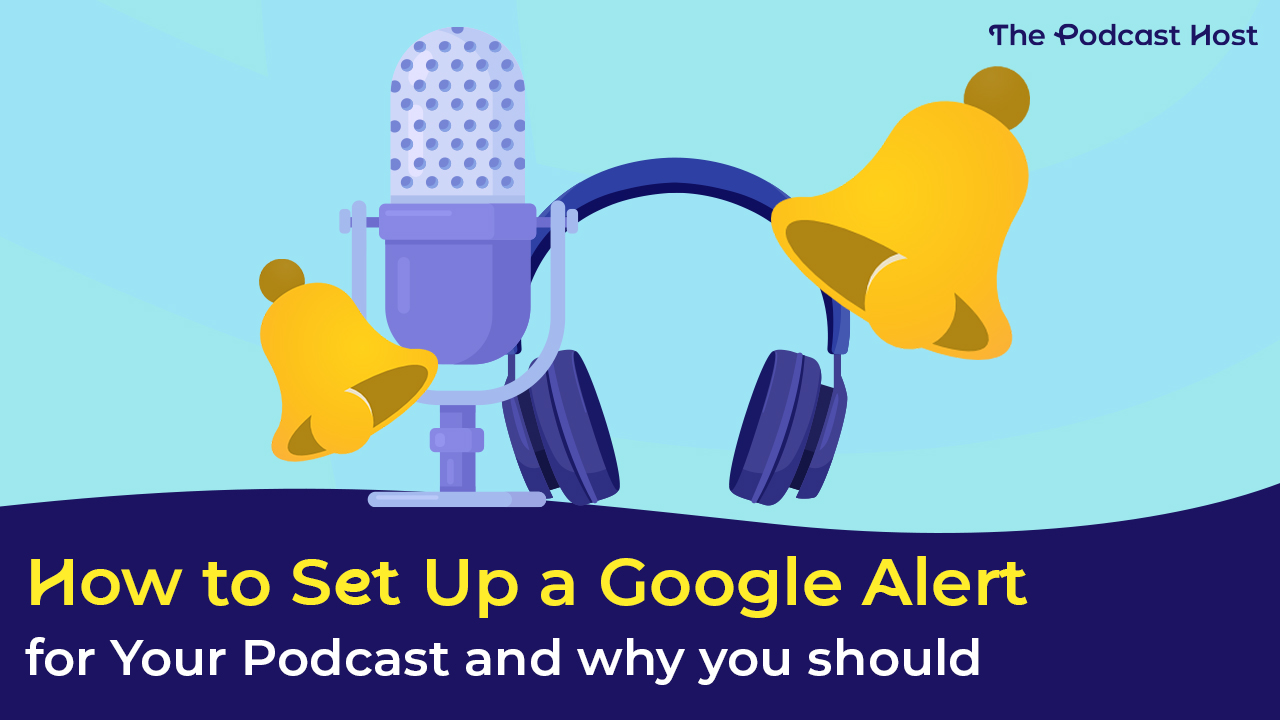How to Prevent Podcast Piracy, Matey

Piracy doesn’t limit itself to ships and the seven seas. If you grew up with a video cassette player, you probably remember the anti-copying warnings at the beginning of any movie. And, if you can remember that, you probably remember Napster, the music-sharing scheme that birthed the mp3 file and zillions of copyright lawsuits. Now we have more file sharing and better internet security. Still, piracy is alive and well in the podcasting world. Unfortunately, it doesn’t involve ruffled shirts, leather trousers and/or swords. Someone can use your podcast to make money without your knowledge if you’re not careful. I’m going to show you a few ways to prevent podcast piracy.
What Do You Mean by “Podcast Piracy?”
This isn’t about intellectual property (though that’s a vital topic for another time). It doesn’t mean that someone plagiarizes your podcast’s content. It’s even lazier.
In 2020, James Cridland of Podnews showed how to import an entire podcast from another host to Anchor. This copies the episodes, artwork and the show notes to a new RSS feed. The person can then set up monetization (as long as the podcast has at least 50 listeners). One podcast isn’t a whole lot of money. But, with a robust internet connection and a lot of time, someone could copy a few dozen podcasts to another host, set up ads, and let it run. In the summer of 2020, The show Nice White Parents, produced by the New York Times and Serial, was just one of the shows copied over to Anchor. People who searched for the show on their podcast listening apps were none the wiser.
When Podnews asked Anchor about this, Anchor said, “When a creator looks to switch a podcast to our platform, Anchor requires verification of identity and ownership of the podcast feed before it is discoverable or accepted for Anchor’s distribution capabilities. Our current process, which requires the user to authenticate via the podcast’s current host by initiating a 301 redirect, both verifies the user’s email address and confirms permission.”
At the time, this involved clicking a box saying, “yes, I own this show.” But that was almost two years ago. They must have improved their website security since then, right? I tested it with my own podcast over on Libsyn. How hard can it possibly be?

I don’t want to go any further with this test, thanks. I’m scared. That’s too easy.
Make Sure Your Podcast’s Contact Information Holds Water
When someone changes podcast hosts, the company receiving the show wants to make it as easy as possible. They want your content, and they want you to get the job done in the minimum number of clicks. Typically, the hosting service sends a message to the email address associated with the RSS feed. This is to verify ownership and ensure they know this is happening.
Make sure the email address for your podcast’s RSS feed is one that you check frequently. It makes sense to use a podcast email address separate from what you use for your personal life. You can set up a simple Gmail address and make it automatically send new messages to your primary email. If Anchor, PodBean or RedCircle or another host sends you a verification message, you’ll know right away.
Some hosting services email a verification code to prove ownership of the RSS feed. In other cases, the user’s own spam filters can block the verification email. This is good, but it’s not 100% piracy-proof.
ID Tags and Identification
Your podcast’s intros and outros are the best places to remind your audience how to get in touch with you. You can give them directions to your website. Mentioning your media host never hurts if you’re concerned about podcast piracy. This doesn’t prevent someone from copying your podcast episodes elsewhere. But, it maintains the integrity of your brand.
More importantly, just like your pet, you can put an ID tag on your podcast.
I asked Stephanie Fuccio, who is a podcast editing expert and very smart about these things. She said, “basically, an ID3 tag is metadata that you add to your audio files. How you add them depends on your DAW or plugin. I use Hindenburg, and there is a ‘Properties’ field. There you fill in information like TITLE, AUTHOR, EP NUMBER and so on.” Similarly, in Garageband, when you export your audio file to disk as an mp3, there’s an option to add tags. She said, “It’s like an artist’s signature on a painting.”
Matthew, also very smart about these things, has written a guide to add ID3 tags to your sound files using iTunes.
These tags make the display look nice when you listen to podcasts in your car. Recently, Bryan Barletta of Sounds Profitable suggested that transcripts can sit in the mp3’s ID3 tag, improving accessibility. While ID tags can’t prevent piracy, right now, they clarify who created the content. If someone wants to download episodes individually and re-upload them to another host, the metadata is preserved. Sure, it can be deleted or overwritten. But, this adds some extra hassle for the pirate, and might be enough to send him sailing off to find some other, easier plunder.

A Piracy Prevention Proposal
If you’ve ever claimed your podcast on a new directory, you may have wondered if anyone could grab it, not just you.
Alberto Betella, the co-founder of RSS.com, suggests podcast hosting companies act on their vested interest in preventing podcast piracy and protecting their users’ privacy (say that three times fast). He said that at Podcast Movement Evolutions 2022, James Cridland of Podnews explained how IDs tags in the RSS feed could prevent copying and theft. The details are way beyond my understanding. I suspect that few entry-level podcasters would understand this. It’s clear that media hosts, who value their customers, can and should step up and make it more difficult for podcasts to be copied and re-distributed elsewhere. Libsyn supports the ‘locked’ tag; hopefully, other media hosts will follow suit.
Has Your Podcast Been Commandeered?
If your podcast is available on another media host, you have every right to be angry. Don’t let it throw you off. Here are a few things to keep in mind:
The money that someone else can get from monetizing your podcast with dynamic ads is less than what you could earn via ad reads, or ad reads and dynamic ads. It’s not a diverse monetization strategy (like if you used ads, crowdfunding and sponsorship).
Most directories, if not all, have a link to report a problem with a podcast. You should report the duplicate as soon as possible. Let your audience know what happened and that you’re taking steps to fix the issue.
Finally, remind your audience that you value them and that they should accept no substitutes. Only your podcast, with its own RSS feed, is the genuine article. And, you can wear all the ruffled shirts, fancy boots and leather trousers you want.

